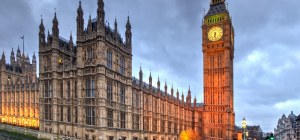68: Brexit – end of the road

Aaron Nelson Legal Director
A lot of troubled water has flowed under Westminster Bridge since our last post:
- the talks between the Government and the Labour, to try to find a Brexit compromise, failed;
- to try (again) to get her deal through Parliament – it having been rejected three times – Theresa May proposed including some form of customs union and a second referendum (in limited circumstances) in the proposed Withdrawal Agreement Bill. Unsurprisingly, that was a compromise too far for the Brexiteers within her party and precipitated another resignation, namely that of Andrea Leadsom, the Leader of the House;
- the Tories suffered historic defeats in the local elections and EU elections (dropping to fifth in the national vote share in the latter), with polling for Nigel Farage’s new Brexit party showing the continued support for Brexit across England (outside London) and Wales; and
- all of which eventually forced May to announce (on 24 May) that she would resign as Tory leader on 7 June, and resign as Prime Minister once a successor was elected.
And so the starting gun was fired on a Tory leadership election. Thirteen MPs announced they would run for the leadership, although three (Kit Malthouse, James Cleverley and Sam Gyimah) later withdrew.
The first ballot of Tory MPs took place today (13 June). All candidates were pro-Brexit – or, at least, committed to implementing the referendum result.
Runners and riders
Boris Johnson was the clear favourite before the first ballot, with 88 MPs declaring for him beforehand, and he leads after the first round with 114 MPs voting for him. He has the support of many in the influential ERG, and among the Tory membership. In terms of Brexit, he initially said the UK would leave the EU on 31 October ‘deal or no deal’, but later appeared to water that down, saying that, while the UK should be ‘prepared to leave without a deal’, a no-deal Brexit was not his aim and he would seek to renegotiate the Withdrawal Agreement, including to remove the Irish backstop.
Jeremy Hunt (43 votes, 37 MPs declared in advance) and Michael Gove (37/36), were seen as the next strongest candidates. Both adopted slightly more moderate positions on Brexit. Hunt has said that he would take the UK out on a no deal basis, but only if it was the only way and it was not his preferred option. Gove is willing to consider a further delay to Brexit, beyond 31 October, to find a solution. At slightly longer odds, Sajid Javid (23/19) has said that he would seek to renegotiate the Withdrawal Agreement and backstop. Mark Harper (10/8), the former chief whip, adopted a similar position, but he was eliminated in the first round today.
Three candidates sought to distinguish themselves by being ‘harder’ on Brexit: Dominic Raab (27/23) went furthest, indicating he would be willing to prorogue (ie suspend) Parliament if it sought to prevent a no deal exit. Andrea Leadsom (11/5) had called the UK leaving the EU on 31 October her ‘hard red line’, while Esther McVey (9/6) said Britain needs a ‘clean break’ from the EU on World Trade Organization terms. Leadsom and McVey were also both eliminated.
At the other end of the spectrum, Matt Hancock (20/17), the health secretary, and Rory Stewart (19/7), the international development secretary, both said leaving with no deal is not an option. One may now drop out to give the other a clear run as the ‘no to no deal’ candidate – giving the membership a real choice.
What’s next the process?
A second MPs ballot will take place on 18 June, after a Channel 4 TV debate between the remaining candidates (seven, if none withdraw). The BBC will televise a second debate between the candidates on 18 June. From 19–20 June, MPs will vote again, to get the number of candidates down to two. There will then be a further televised debate. The general membership of the party will elect the leader by postal ballot with the result to be announced on 22 July.
While Johnson may be leading at this stage, there is a tendency in Tory leadership contests for the frontrunner at the start to fail to secure the top job. In 1997, Ken Clarke won the first round but ultimately lost out to William Hague. In 2001, Iain Duncan Smith came from behind to beat Michael Portillo. And in 2005, second place David Cameron saw off David Davis. Johnson was clearly identified as the front runner before the first ballot, yet only a third of MPs voted for him. Might the remainder coalesce behind an ‘anyone but Boris’ candidate?
And then?
Of course, irrespective of who is elected as Tory leader, he will inherit May’s 2017 General Election legacy – no overall majority – the same decision about how to leave the EU, and the threat of the Brexit party if they don’t.
Moreover, the fact that Hancock and Stewart, both clearly opposed to a ‘no deal’ Brexit, secured the votes of 39 Tory MPs seems to indicate that there would be a majority of MPs across the Commons who are opposed to a ‘no deal’ Brexit, notwithstanding that, yesterday, the Commons rejected Labour’s motion to rule out a ‘no deal’ Brexit by 309 votes to 298. In that vote, only 10 Tory MPs rebelled against the Government, with the Government winning thanks to votes from the DUP and 8 Labour MPs, but, if 39 Tories voted for such a motion (as the leadership election suggests), it would likely be carried.
If ‘no deal’ is off the table, then the new leader will have to try to renegotiate the terms of the UK’s exit, and will face the same arguments from the EU about the need for the Irish backstop, the financial settlement, and so on, which led to the Withdrawal Agreement being concluded in the form it has been. Only Gove has suggested requesting a further delay to the October 31 deadline to allow a renegotiation. Any attempt at compromise could alienate the hard Brexit side of the party, who exercised such influence over May’s premiership.
The next PM will find the road no easier than his predecessor.
‘Although we’ve come to the end of the road, Still I can’t let go, it’s unnatural’ (Boyz II Men, End of the Road)
Enjoying the blog? Why not try the Great Repeal Bill Blog playlist on Spotify.









